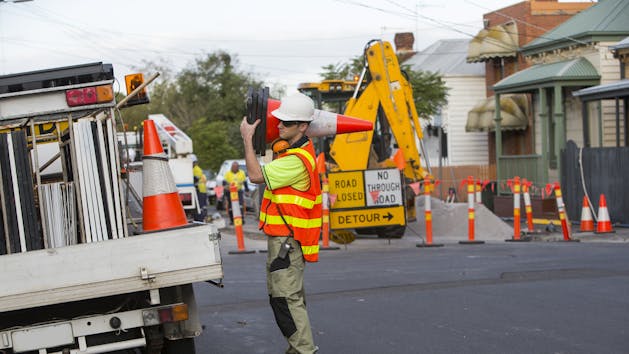Find the right solution for your business with our free Fleet Management Buyer’s Guide.
Scheduling Snafus: Avoiding the Domino Effect
Have you ever played the game Jenga? Created in the 1970s, the point is to use 54 wooden blocks to first build up an 18-level tower of three blocks each in perpendicular patterns, then move one at a time from each level by adding it to the topmost level. It’s game over if the tower falls.
Jenga is a game of dexterity, and people play it at cocktail parties for sheer comedic effect. The more drinks someone has imbibed, the less capable he or she is at deftly moving these little blocks – which means the tower falls down constantly, and everyone gets to enjoy the primal pleasure of watching 54 wooden blocks crash to the ground (because we’re all just toddlers deep down).
Playing Jenga makes you realize that adding or removing one small part of a whole can really impact the big picture – and not just with cocktail party games, either.
For instance, you might sometimes feel like you’re playing a real-life game of Jenga when you’re trying to schedule enough field techs and drivers on a given work day – not too few, not too many, but just enough – or if you have to shift schedules around at the last minute.
And just like selecting the wrong Jenga block, the work day can change in an instant – if several customers call in emergency orders, for example. You might have what seems like the right number of techs on duty that day, but if you’re not sure when each one will finish the job they’re working on, how will dispatchers know who to send on these emergency jobs – or whether you should bring in an on-call tech?
Fortunately, GPS vehicle tracking can eliminate this kind of confusion by helping you understand how long jobs take, so you can schedule the right number of techs for each day, and give your dispatchers a clear idea of who’s available for an emergency.
Managers can also pull up trips that happened in the past and run reports to gauge the average time a certain service takes, which lets them plan better for how many people to schedule on a given day.
And if the worst-case scenario happens and multiple customers phone in emergency job orders, dispatchers can easily reconfigure schedules using drag-and-drop options within the dashboard, letting them move techs around based on availability and location. The techs get an alert on their mobile device that their schedule has changed, and emergency job orders are filled ASAP, instead of dispatchers spending a lot of time calling around to figure out where people are, how close they are to finishing their current service and whether they have time to squeeze something in.
This means that you’re not playing Jenga with people’s schedules to accommodate new orders – and trying to achieve a delicate balance between taking more job orders and ensuring you’re staffed enough to handle them. One more job can make a big impact on a company’s daily operations, but GPS vehicle tracking software gives the visibility and data to help make the important decisions on scheduling and dispatching.
And now if you’ll excuse us, we have a pile of wooden blocks to clean up.
Find out how our platform gives you the visibility you need to get more done.




